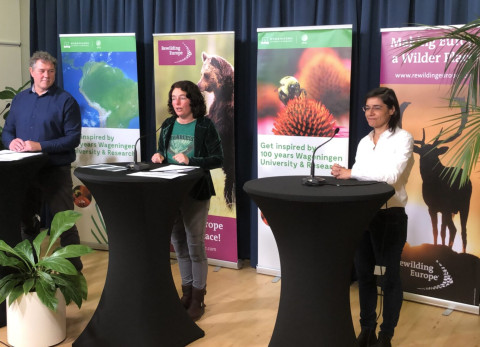Symposium success reveals huge potential of rewilding

Symposium success reveals huge potential of rewilding
Press inquiries
With over 2000 participants, the enormous interest in last week’s Rewilding Symposium shows that rewilding is being increasingly embraced as a progressive approach to conservation. As the connection between rewilding science and practice develops, the impact of rewilding will continue to scale up and inspire others to become involved.
Rewilding boasts increasing appeal as a progressive conservation approach, and offers game-changing potential in terms of the global restoration of wild nature. These were the overriding takeaways from the online Rewilding Symposium, which took place on Thursday 3 December.
More than 2000 people from more than 50 countries across the world joined the event, which was organised by Rewilding Europe, Wageningen University and the Netherlands Institute of Ecology (NIOO-KNAW).
“At the start of the symposium I posed the question: ‘can we rewild the world?'” says symposium co-host and event chair Liesbeth Bakker, Europe’s first professor of rewilding ecology. “Given the overwhelming interest in and positive feedback from this event, the simple answer has to be yes."
Participants in the Rewilding Symposium enjoyed talks by six rewilding experts and practitioners. Their presentations can now be viewed online:
- Rewilding: A new narrative in conservation by Paul Jepson (Nature Recovery Lead, Ecosulis)
- Rewilding European Landscapes by Frans Schepers (Rewilding Europe)
- Mapping rewilding opportunities in Europe by Nestor Fernandez (German Centre for Integrative Biodiversity Research, iDiv)
- Restoring the role of megafauna in European ecosystems by Jens-Christian Svenning (Aarhus University)
- How to measure rewilding success by Patrick Jansen (Wageningen University)
- Connecting rewilding science and practice by Liesbeth Bakker (Netherlands Institute of Ecology)
